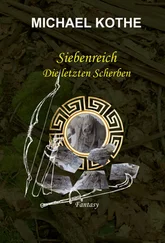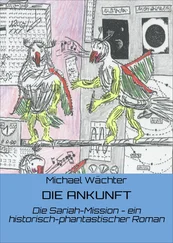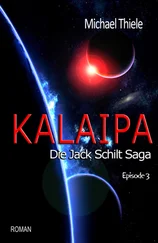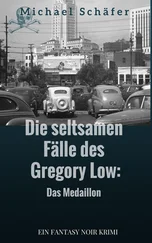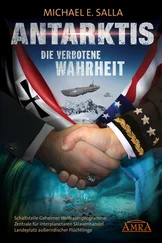That night after she dropped asleep in his arms in San Francisco, he got up and stashed the fire poker under his cot in New York. One thing he’d learned thus far was that the border between the Inside and the Outside wasn’t as impermeable as she liked to believe. He knew that sooner or later, the Outside would want in.
When Christmas break was over, his mother called the school secretary and said Will was going to need more time to recuperate, months, years — the doctors weren’t sure. After that they slipped back into the old routine. She ordered fresh art supplies, Will rolling in the desk chair to meet deliverymen at the door, the acrylic tubes still cold in their hands. She ordered Will any food he wanted, even tortilla chips, the choke equivalent of the A-bomb.
She lowered his easel, and he painted while seated with his Helmet on, cranking out a series in the old style — abstract whirls and smears of gold and purple — more to soothe her nerves. He spent more time titling his works than painting them:
Sailing a Sea of Wolves
The Surprising Nutritiousness of Jam
Canadian Ninja I: Strikeforce Cobra
Canadian Ninja II: Sais Extra Large
Zeus vs. Jesus: Thunderbolt Rotisserie
Boy, Eleven, Riddled with Spears, Survives Unscathed
He watched his hunched schoolmates with pity as they passed his house in the dark mornings. The only Outside people he missed were Jonah, Angela, and of course Marcus. But even after their ice sliding and fight with the wolf, Jonah still wouldn’t talk to him. One night Will located Angela’s number in the phone book, fantasizing about having her over for smoothies and playing her some of his Sound Collages or his Philip Glass — style compositions on the organ (repeating three-note motifs that went on for as long as his fingers could manage) before they’d retreat for some cuddling in New York. But he never called.
Soon his leg grew unbearably itchy, but strong enough to perform his old duties: laundry in Toronto, changing bulbs, writing checks for deliverymen — filling the gaps left by the Black Lagoon. He found his mother weeping less, no longer distracted by a sound he could not hear, like a dog whistle or what was good about jazz music.
He retained his limp past the point he needed, and when he finally allowed it to fall away like training wheels unbolted from a bicycle, he felt her grow tense. But still he made no attempt to leave. Overall, his life Outside had mostly been a disappointment. He hadn’t found Marcus or joined any boy gangs or used his genius to solve any mysteries. He’d found only questions piled upon questions, with no connections or sense to it — just Black Lagooned people fumbling around in the dark, alone.
He knew now how selfish it was to leave. His body wasn’t only his. Because they were twins, his uncle Charlie’s body had been partly his mother’s too. And Will couldn’t wound her like that again. To be her guardian he would need to protect his body and his heart. As much as it pained him, he would have to leave all the tantalizing mysteries of the Outside unsolved.
Marcus would have to find himself.
Charlie . At once a dreadful curse and a holy utterance. Unfortunately for Diane, saying it to Will for the first time, coupled with the sight of his little thigh splayed open, had unbolted a door in her mind.
Yes, she’d lied. But how else could she explain to Will that the reason he had no extended family — no cousins, uncles, or grandparents — was that he descended from a long line of people who died tragically, usually absurdly, with no sense to be made of any of it? That their family tree was one of misshapen branches, bare, leggy—“Good for climbing,” her father often joked. That historically, the Cardiels were God’s crash-test dummies, extras in the action film of history, a people destroyed by what they did. They expired in mine collapses, boat capsizements, log-boom mishaps. They took absurd, Looney Tunes — style falls from the buildings, scaffolds, granaries, and bridges that they’d just constructed. Their sons were the first shot out of the landing boats, the ones collapsed at the lip of the trench, the ones who died in a hail of soil from a shell landing twenty feet from the group of soldiers charging their way to glory. A people terminated in tragedies so senseless they got their own newspaper stories simply because others needed to be reminded that life was only loaned.
Perhaps it was all due to some doomed combination of recklessness, fragility, and rotten luck, or perhaps there was a self-destruct mechanism embedded in the Cardiel line, a kind of discontinuation of the species strategy — she couldn’t say — but Will’s grandfather Theodore had managed to last longer than most.
He grew up on a barley farm outside Burlington, and after his parents were simultaneously cut to ribbons by the diesel-powered thresher they’d borrowed riskily to purchase, his family fell destitute. Theodore enlisted as a pilot in the Royal Navy when he was eighteen, and only in the last week of flight school was it discovered he couldn’t discern red from green. Because the cockpit buttons were color coded, he was hastily taught to cook and dropped in the galley of a transport ship, where his duties entailed frying breakfasts and pumping up each sailor’s daily rum ration from oak casks below. Shortly after, Theodore’s ship collided with a friendly destroyer in a fog north of the Isle of Man. As black water poured into the galley, Theodore stripped his uniform and smeared himself head-to-toe with sausage grease. He bobbed in the North Atlantic for six hours, praying the ship diesel splayed on the surface wouldn’t ignite, before some Norwegian mackerel fishermen hoisted him out and wrapped him in a red woolen blanket ruined instantly by the grease.
After the war, a shipmate found Theodore work on the docks in Oakland, loading grain boats with willow shovels in order to prevent sparks that could ignite the gases from the grain and blow the entire elevator to the Midwest. Theodore never spoke of it, but Diane knew her father had been to prison around this time: an assault — some said serious, and some said a drunken punch he’d landed with more calamity than he intended — but shortly after his release he met their mother, Iola, who’d worked in the courthouse.
The couple married and moved to Canada, where Theodore secured better employment on the Lakes in Thunder Bay. On principle he chose the largest grain elevator, the Saskatchewan Wheat Pool 6, where he unblocked clogged conveyance chutes and hoppers. “Walking down the grain,” as it was known — the riskiest job on the harbor, because of the constant threat of live burial. Before he lowered himself into the bins, Theodore would empty his pockets into a tin can — wallet, keys, snapshot of his wife — because if things shifted, if moisture or air pockets were hidden in the grain, a man could be swallowed instantly, his safety cable snapping like a string of spit. “Grain is neither solid nor liquid,” her father often said, “so there’s your problem.”
After three years, during which frantic coworkers had thrice dug out Theodore’s buried and nearly asphyxiated body, each time cutting him nastily with their spades, he was hired as the foreman of an unloading crew. From then on, he minded and coaxed the enormous hydraulic rig that grasped railcars and flipped them over to evacuate them of grain, as many as eight per shift. Theodore was fair and well regarded and men drew straws to work beneath him. If ever the mechanism seized, he did not send the youngest man, as was custom, but climbed into the hydraulics himself, which were, as the saying went, “enough to turn a boy to a man, and a man to a sausage.”
Читать дальше




